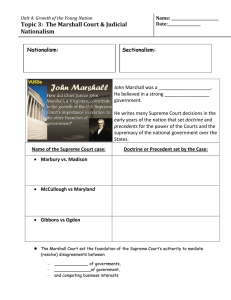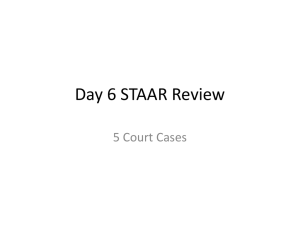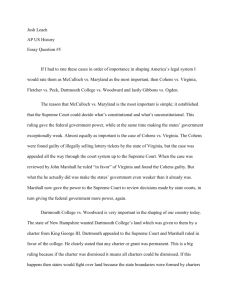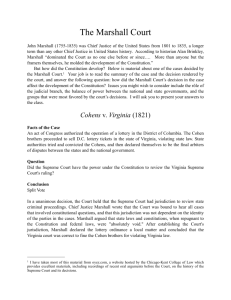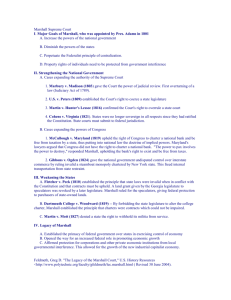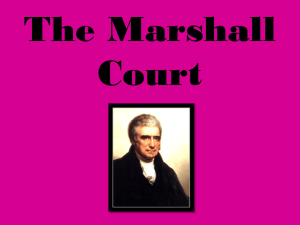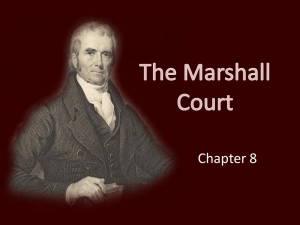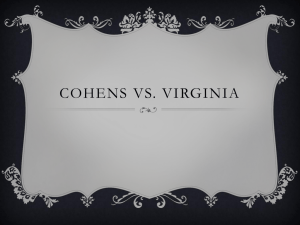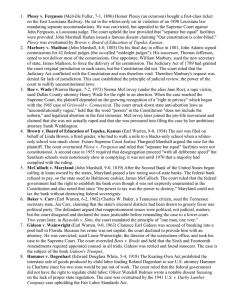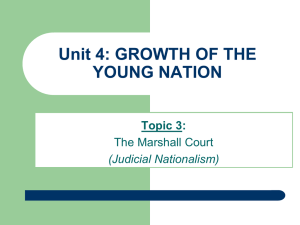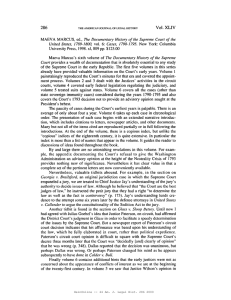Sarah Holland
advertisement
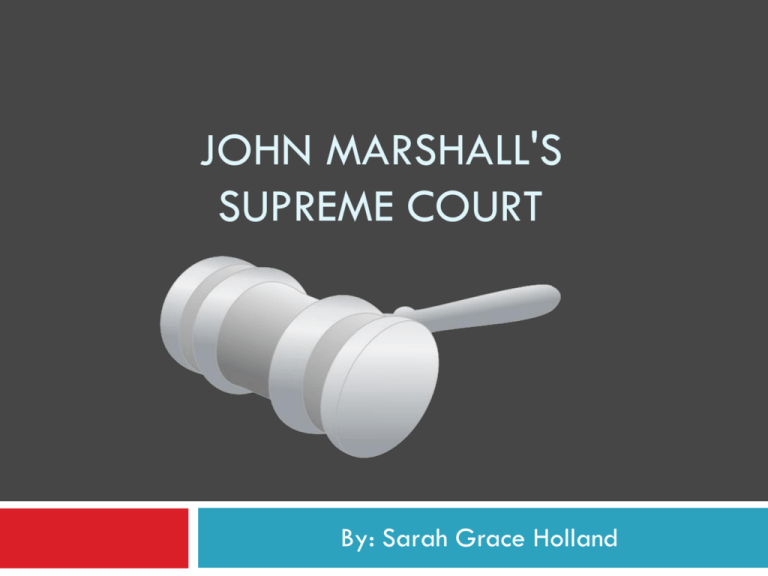
JOHN MARSHALL'S SUPREME COURT By: Sarah Grace Holland John Marshall: Ruler of the Supreme Court Studied for only a few weeks at William and Mary This was his only formal education He was an aggressive federalist He supported nationalism McCulloch v. Maryland Attempt to destroy a branch of the US bank Maryland tried to tax bank notes John Marshall declared the bank Constitutional Hamiltonian doctrine of implied powers Constitution came from the peoples consent and gave the government the power to act for the people’s benefit Cohens v. Virginia The Cohens were found guilty of illegally selling lottery tickets The conviction held…but essentially Virginia and the states lost Marshall asserted the right of the supreme court to review states decisions Gibbons v. Ogden: “The Steam Boat” Case New York tried to start a monopoly of trade with New Jersey Supreme Court reminded that only congress could control commerce between States Another blow to states rights Fletcher v. Peck Private speculators bribed Georgia’s legislature to give them 35 million acres in Yazoo River Country. The next Legislature to come in, fearing public anger, canceled the transaction. John Marshall declared that the agreement was a contract and contracts and cannot be interfered with by states laws. Gave the Supreme Court the power to make state laws Illegal. Dartmouth v. Woodward College granted charter by King George III, New Hampshire tried to change it. Case argued by Daniel Webster; who was an alumni Marshall ruled the charter could not be changed because, it was a contract and the Constitution did not allow states to over rule it.
